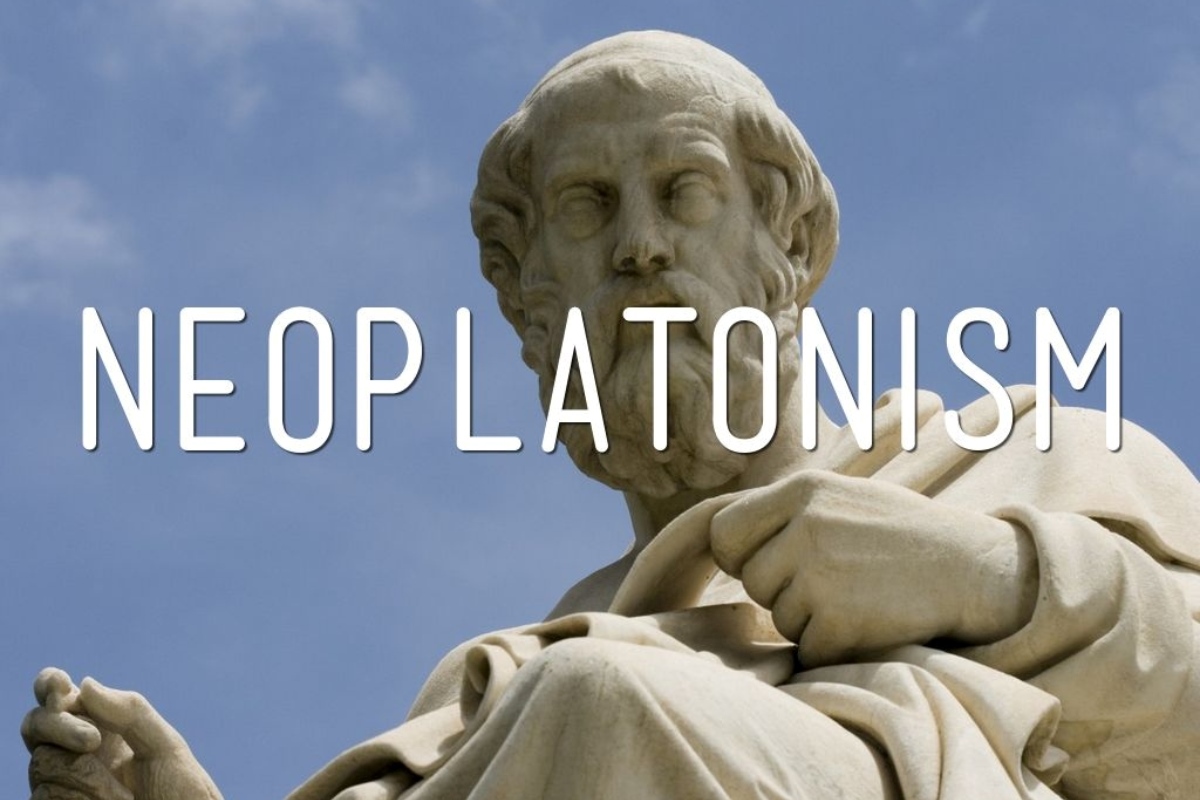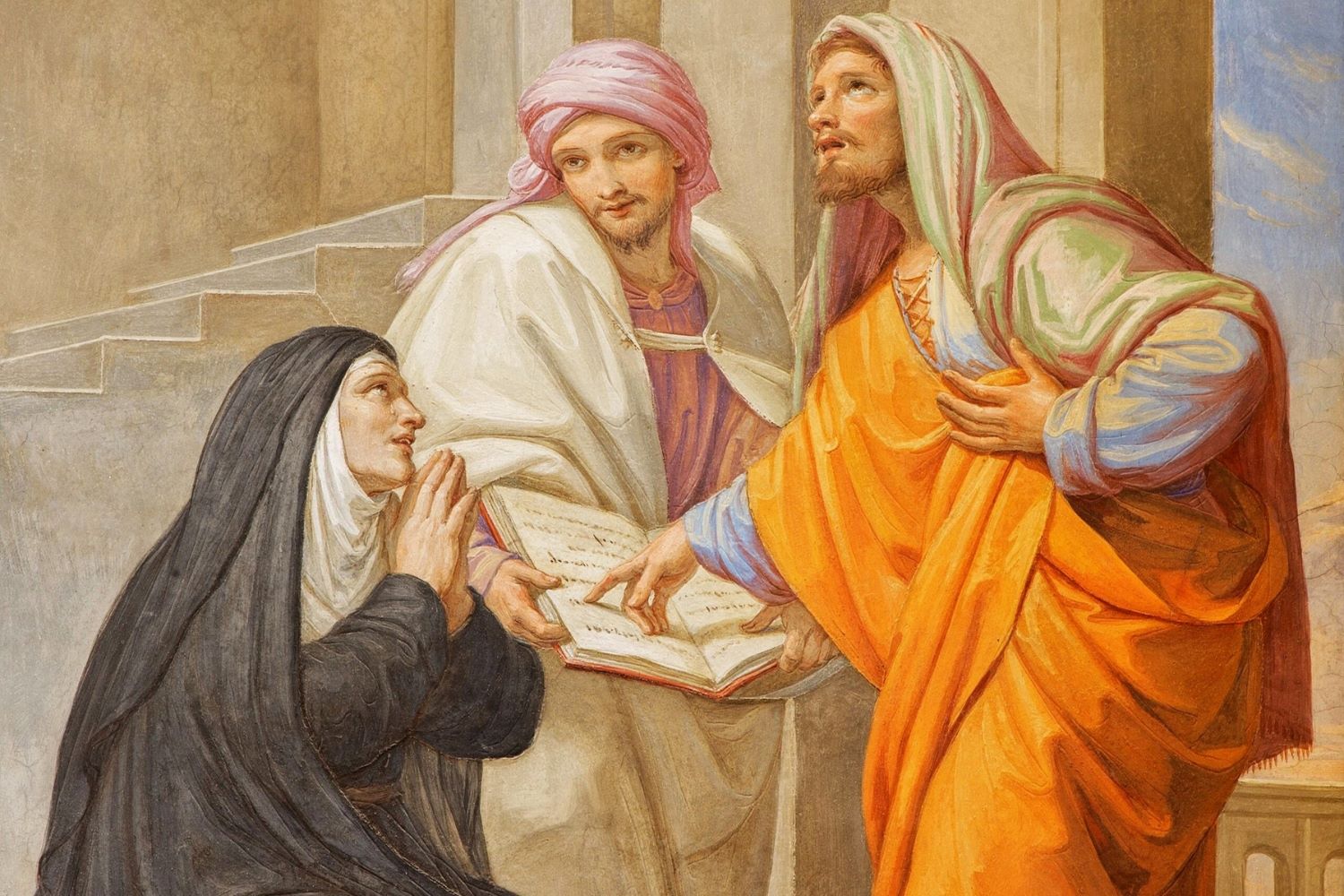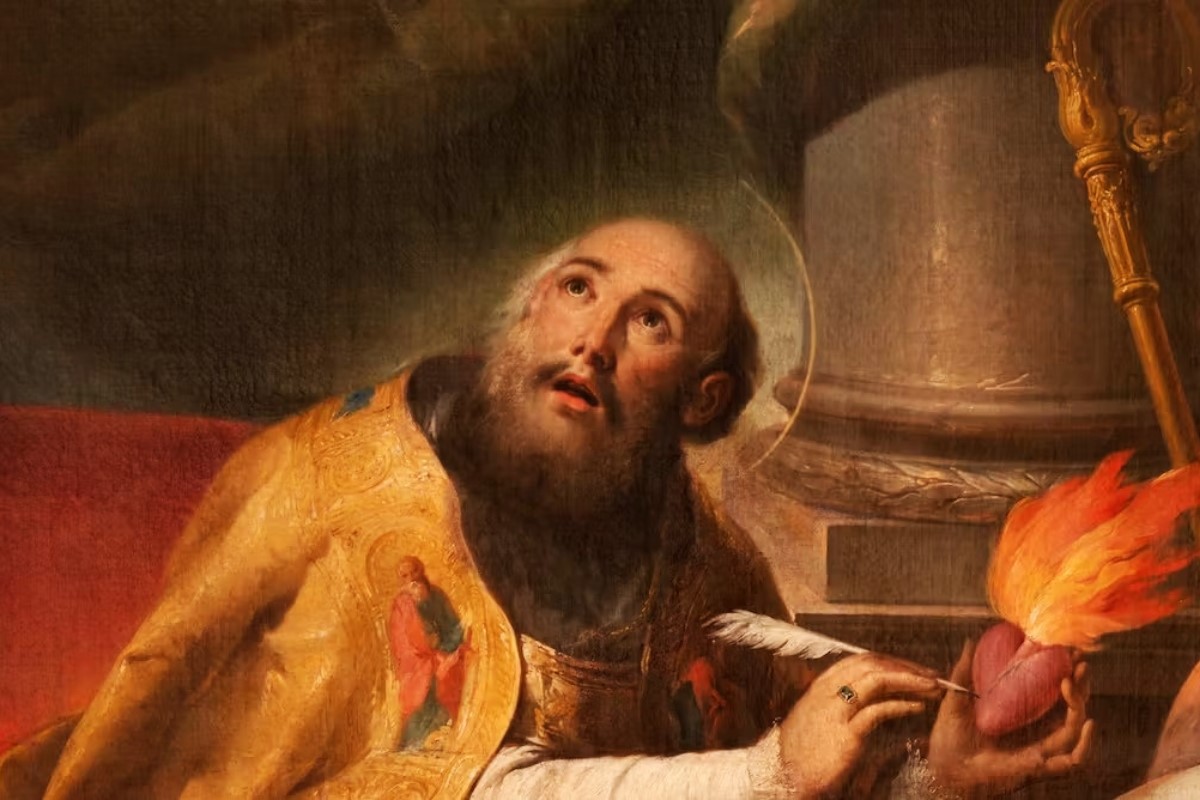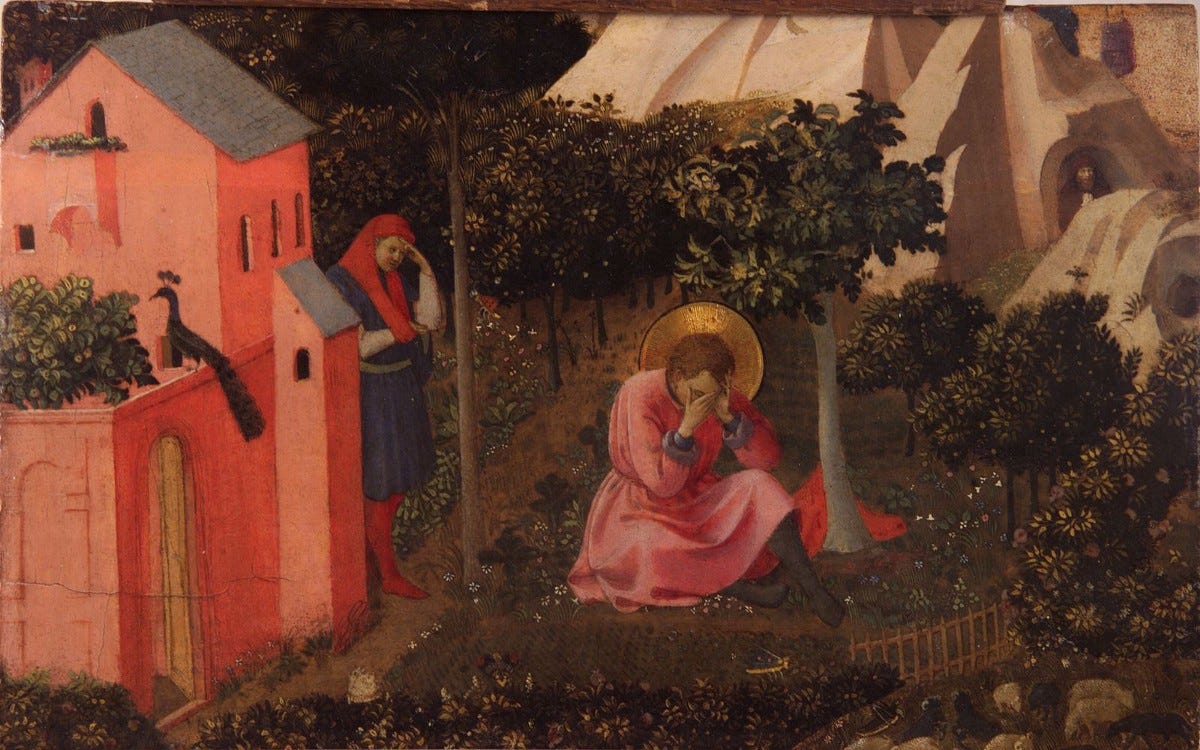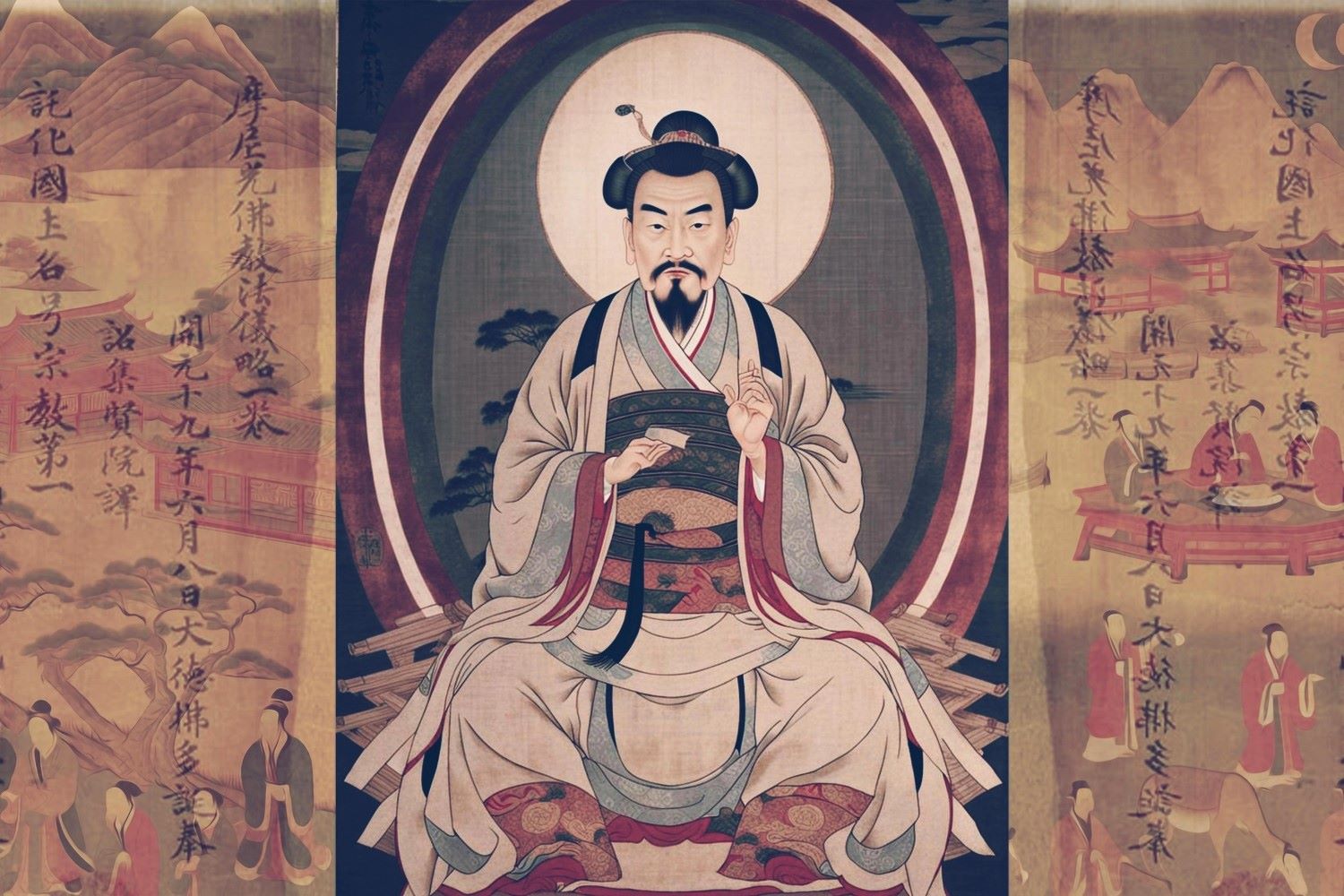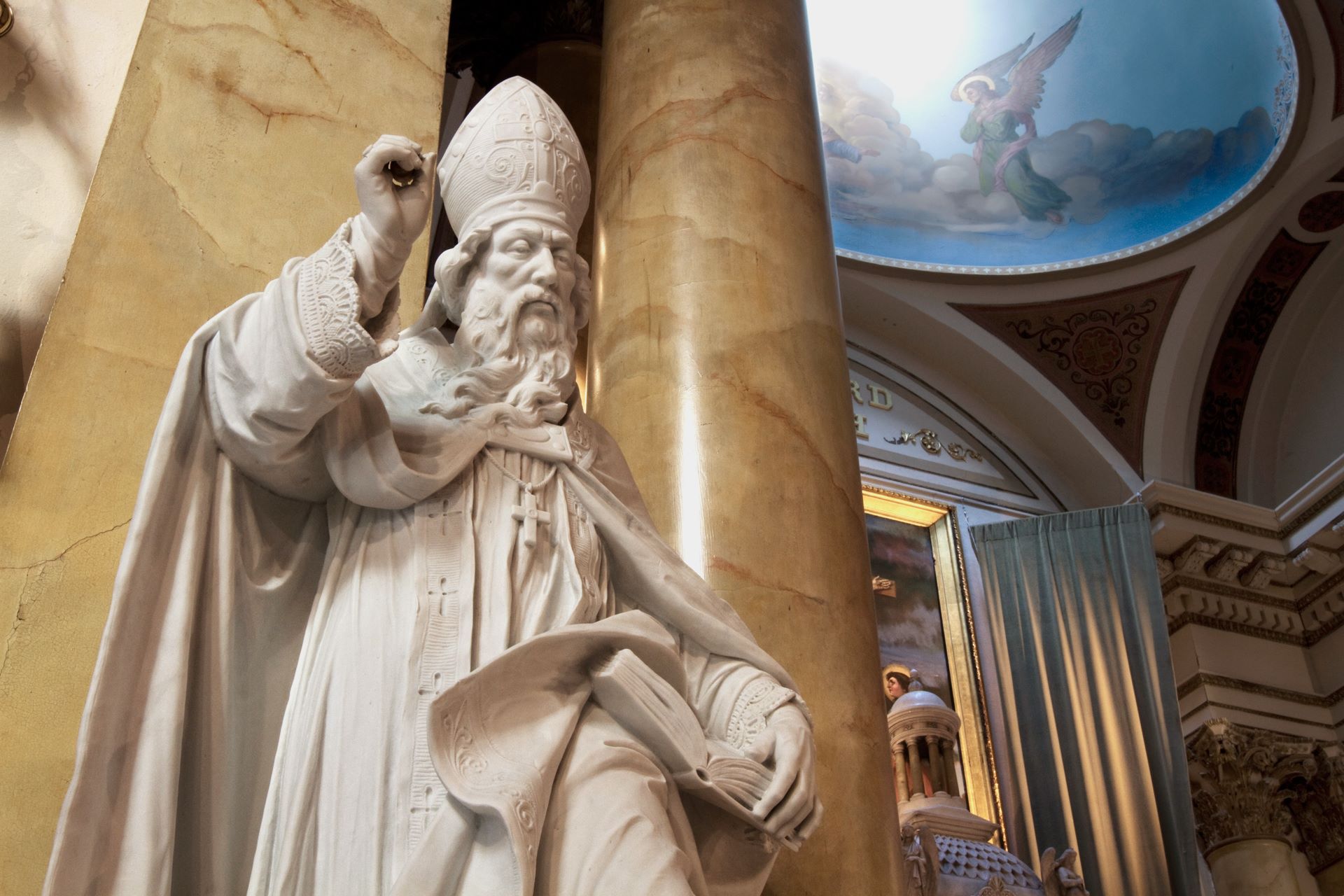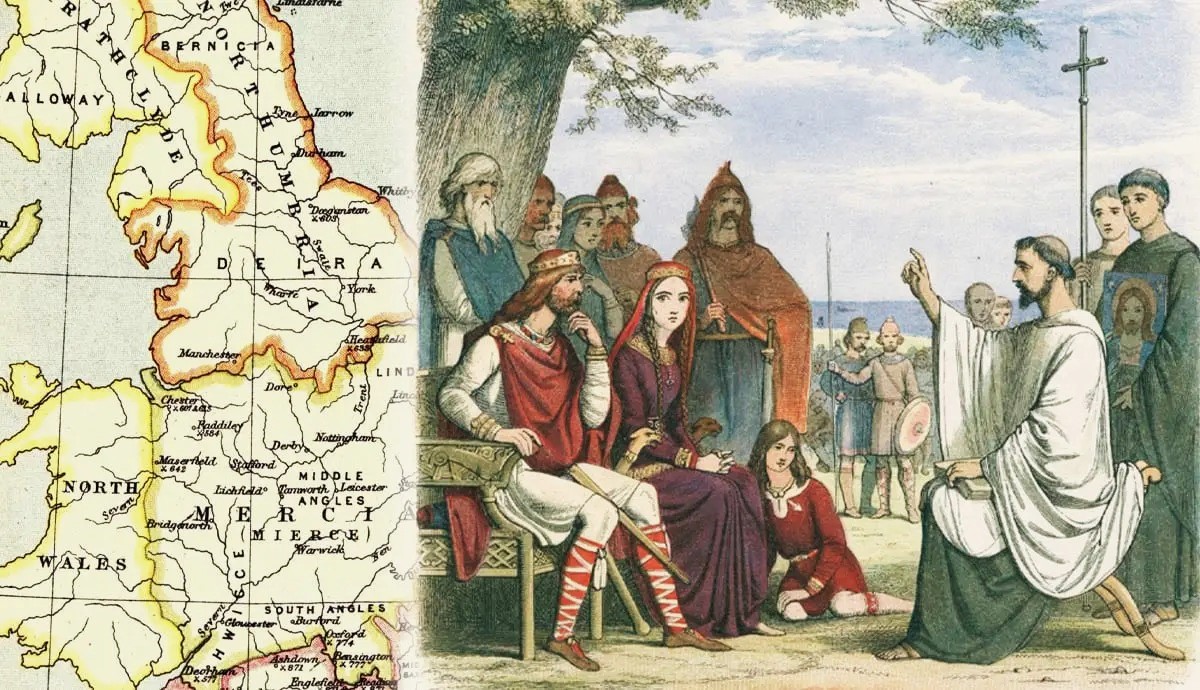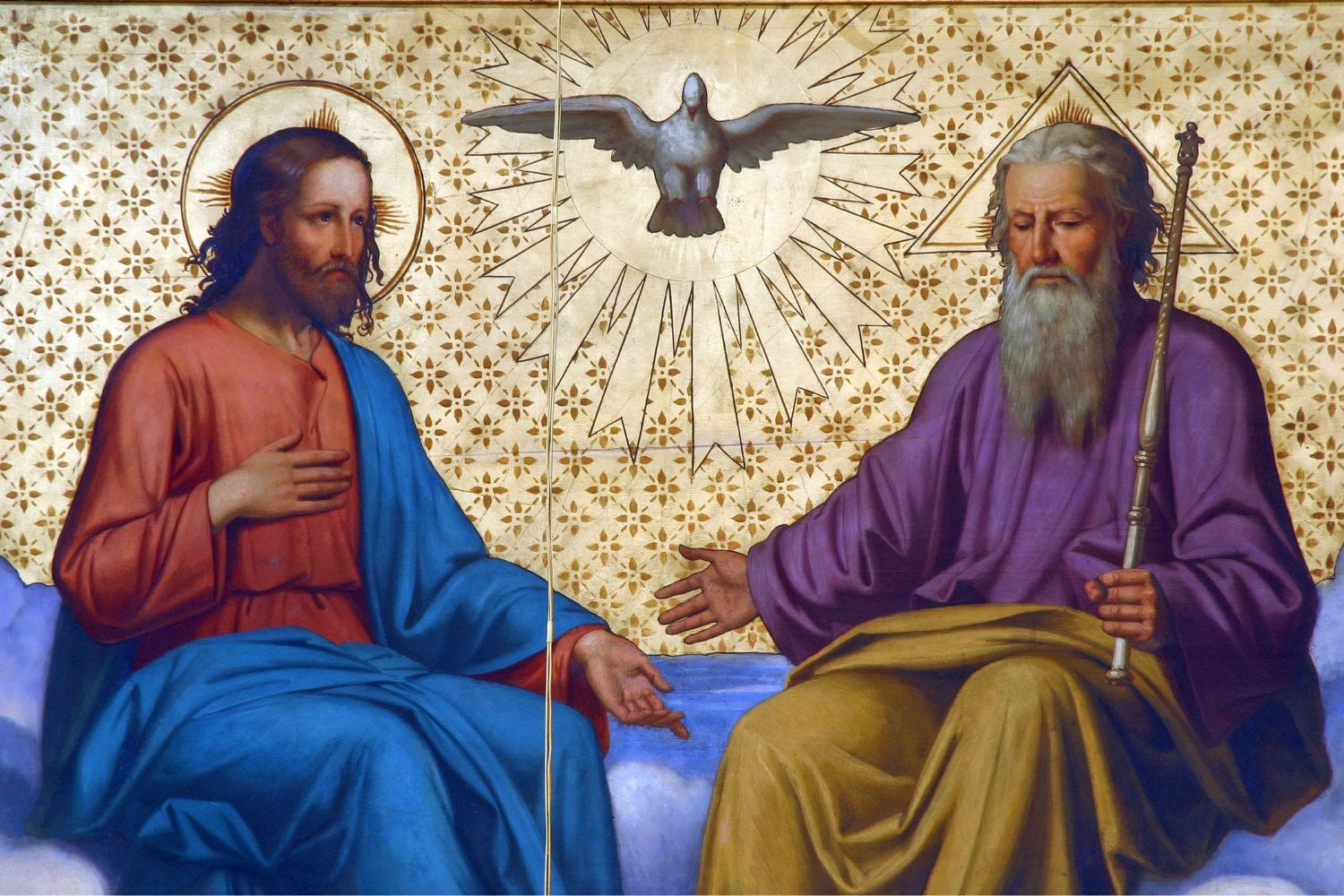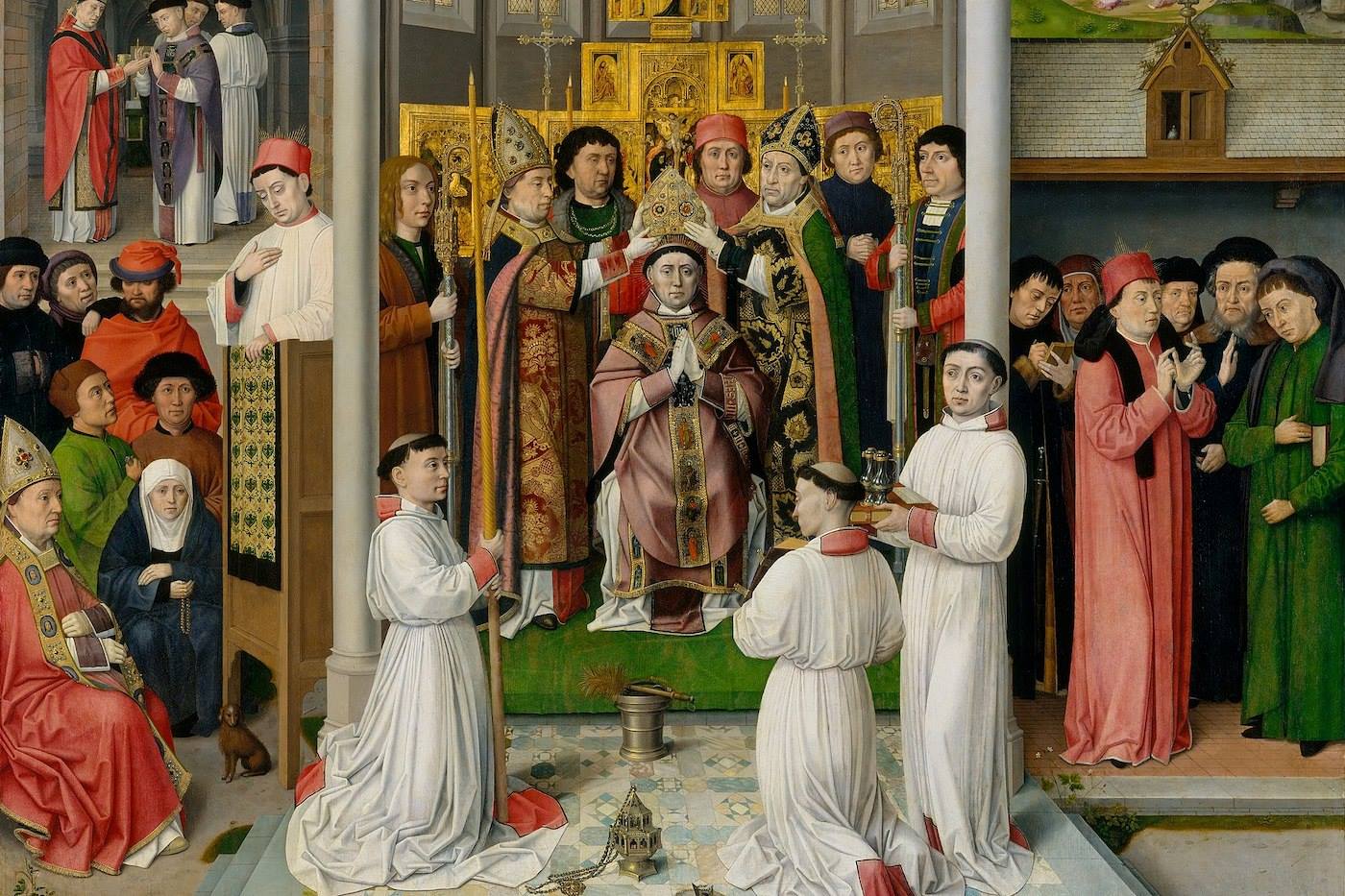Home>Theology and Spirituality>Which Neoplatonic Ideas Did Augustine Borrow And Express In Book XI Of Confessions


Theology and Spirituality
Which Neoplatonic Ideas Did Augustine Borrow And Express In Book XI Of Confessions
Published: February 10, 2024
Peter Smith, Editorial Director at Christian.net, combines deep insights into faith, politics, and culture to lead content creation that resonates widely. Awarded for his contributions to religious discourse, he previously headed a major organization for religious communicators, enhancing dialogue on faith's societal impacts.
Discover the Neoplatonic concepts that influenced Augustine's theology and spirituality in Book XI of Confessions. Explore the borrowed ideas and their expression.
(Many of the links in this article redirect to a specific reviewed product. Your purchase of these products through affiliate links helps to generate commission for Christian.net, at no extra cost. Learn more)
Table of Contents
Introduction
In Book XI of Confessions, Augustine delves into profound philosophical and theological reflections, drawing inspiration from Neoplatonism, a school of thought that greatly influenced his intellectual development. This section of the renowned work showcases Augustine's engagement with Neoplatonic ideas, offering a fascinating exploration of the relationship between the material world and the realm of the divine. By examining the Neoplatonic concepts that Augustine borrowed and expressed in Book XI, we gain valuable insights into his philosophical journey and the enduring impact of Neoplatonism on his theological framework.
Throughout Confessions, Augustine grapples with the complexities of human existence, the nature of reality, and the pursuit of spiritual truth. His encounter with Neoplatonism, particularly evident in Book XI, provides a lens through which he contemplates the transcendent and seeks to reconcile the limitations of earthly existence with the yearning for divine union. As we embark on this exploration of Neoplatonic influences in Book XI, we are invited to accompany Augustine on a profound intellectual and spiritual odyssey, where the boundaries between philosophy and theology blur, giving rise to a rich tapestry of contemplation and inquiry.
In the following sections, we will delve into specific Neoplatonic ideas that permeate Book XI of Confessions, shedding light on Augustine's engagement with concepts such as the One and the Many, the Theory of Forms, the Role of the Soul, and the Ascent to God. Through this examination, we aim to unravel the intricate interplay between Neoplatonism and Augustine's theological reflections, discerning the ways in which he skillfully integrates and interprets these philosophical tenets within the framework of his Christian worldview. As we navigate the intellectual landscape of Book XI, we will uncover the enduring relevance of Neoplatonic thought in shaping Augustine's theological discourse and illuminating the perennial quest for spiritual understanding and transcendence.
Read more: How Did Augustine Use Plato’s Ideas
Neoplatonic Ideas in Book XI of Confessions
In Book XI of Confessions, Augustine masterfully weaves Neoplatonic ideas into his theological reflections, demonstrating a profound engagement with the philosophical framework of Neoplatonism. This section serves as a captivating testament to Augustine's intellectual journey, as he grapples with the intricate interplay between the material world and the realm of the divine. Neoplatonism, with its emphasis on the transcendent and the metaphysical, provides a rich tapestry of concepts that Augustine deftly integrates into his exploration of the nature of reality and the pursuit of spiritual truth.
At the heart of Neoplatonism lies the concept of the One and the Many, a fundamental theme that permeates Book XI of Confessions. Augustine contemplates the unity of all existence in the divine One, transcending the multiplicity of the material world. This Neoplatonic notion profoundly influences Augustine's reflections on the nature of God and the relationship between the finite and the infinite. Through his engagement with the One and the Many, Augustine navigates the complexities of human existence, seeking to reconcile the fragmented nature of earthly life with the yearning for divine unity.
Furthermore, Augustine's exposition in Book XI reflects the Neoplatonic Theory of Forms, which posits the existence of transcendent, immutable archetypes that define the essence of all things. Augustine grapples with the implications of this theory, contemplating the eternal and unchanging nature of divine truth amidst the flux of temporal existence. His exploration of the nature of knowledge and the pursuit of wisdom resonates with Neoplatonic ideals, as he seeks to transcend the limitations of sensory perception and ascend to the contemplation of eternal truths.
The Role of the Soul emerges as another pivotal Neoplatonic concept that permeates Augustine's reflections in Book XI. Drawing on Neoplatonic thought, Augustine delves into the nature of the soul, its ascent towards the divine, and its participation in the realm of the intelligible. This exploration mirrors the Neoplatonic emphasis on the soul's journey towards union with the divine, reflecting Augustine's profound engagement with the Neoplatonic understanding of the soul as a mediator between the material and the spiritual realms.
Finally, Augustine's contemplation of the Ascent to God echoes the Neoplatonic framework of spiritual progression towards the ineffable source of all existence. His reflections on the soul's ascent towards divine illumination and union with the One resonate with Neoplatonic notions of the soul's journey through the metaphysical realms towards ultimate unity with the transcendent source of all being.
In Book XI of Confessions, Augustine skillfully integrates these Neoplatonic ideas into his theological reflections, offering a compelling synthesis of philosophical inquiry and spiritual contemplation. His engagement with the One and the Many, the Theory of Forms, the Role of the Soul, and the Ascent to God exemplifies the enduring influence of Neoplatonism on his intellectual and theological development, inviting readers into a profound exploration of the interplay between Neoplatonic thought and Christian theology.
The One and the Many
The concept of the One and the Many holds a central position in Neoplatonic philosophy and profoundly influences Augustine's reflections in Book XI of Confessions. At the heart of this concept lies the idea of unity transcending multiplicity, reflecting the Neoplatonic understanding of the divine One as the source of all existence. Augustine grapples with the implications of this profound philosophical theme, seeking to reconcile the fragmented nature of the material world with the yearning for divine unity.
In his contemplation of the One and the Many, Augustine navigates the complexities of human existence, delving into the tension between the finite and the infinite. He ponders the nature of God as the ultimate unity, transcending the manifold aspects of the created world. This Neoplatonic concept becomes a lens through which Augustine explores the nature of reality and the human longing for transcendence.
The One and the Many also shapes Augustine's understanding of the relationship between the material and the divine. He contemplates the inherent unity that underlies the diversity of creation, reflecting the Neoplatonic emphasis on the divine as the unifying principle that harmonizes the multiplicity of existence. Augustine's engagement with this concept underscores his profound intellectual journey, as he grapples with the implications of divine unity for the human experience.
Furthermore, Augustine's contemplation of the One and the Many serves as a catalyst for his exploration of the nature of the soul and its yearning for union with the divine One. He delves into the Neoplatonic understanding of the soul as a mediator between the material and the spiritual realms, reflecting on its inherent longing for reunion with the transcendent source of all being. This profound engagement with the One and the Many illuminates Augustine's theological reflections, offering a captivating synthesis of Neoplatonic philosophy and Christian thought.
In Book XI of Confessions, Augustine's contemplation of the One and the Many invites readers into a profound exploration of the interplay between Neoplatonic thought and Christian theology. Through his nuanced reflections, Augustine skillfully integrates this fundamental Neoplatonic concept into his philosophical and theological framework, offering a compelling testament to the enduring relevance of the One and the Many in the pursuit of spiritual understanding and transcendence.
The Theory of Forms
The Theory of Forms, a cornerstone of Neoplatonic philosophy, profoundly influences Augustine's reflections in Book XI of Confessions. This concept, attributed to the ancient Greek philosopher Plato, posits the existence of transcendent, immutable archetypes that define the essence of all things. Augustine's engagement with the Theory of Forms reflects his profound contemplation of the eternal and unchanging nature of divine truth amidst the flux of temporal existence.
In his exploration of the Theory of Forms, Augustine grapples with the implications of this Neoplatonic concept for the nature of knowledge and the pursuit of wisdom. He delves into the enduring reality of divine archetypes, transcending the ephemeral manifestations of the material world. Augustine's contemplation mirrors the Neoplatonic emphasis on the ascent from the realm of sensory perception to the contemplation of eternal truths, echoing the enduring quest for transcendent understanding.
Furthermore, Augustine's engagement with the Theory of Forms becomes a lens through which he navigates the complexities of human cognition and the yearning for intellectual and spiritual illumination. He contemplates the inherent tension between the mutable realm of sensory experience and the immutable realm of divine archetypes, seeking to reconcile the limitations of human perception with the enduring reality of transcendent truth.
Moreover, Augustine's exposition of the Theory of Forms reflects his profound intellectual journey, as he grapples with the implications of divine archetypes for the human quest for wisdom and understanding. His contemplation of the eternal and unchanging nature of divine truth resonates with Neoplatonic ideals, offering a captivating synthesis of philosophical inquiry and spiritual contemplation.
In Book XI of Confessions, Augustine skillfully integrates the Theory of Forms into his theological reflections, offering a compelling testament to the enduring influence of Neoplatonism on his intellectual and theological development. Through his nuanced engagement with this fundamental Neoplatonic concept, Augustine invites readers into a profound exploration of the interplay between Neoplatonic thought and Christian theology, illuminating the perennial quest for spiritual understanding and transcendence.
The Role of the Soul
The concept of the soul's role, deeply rooted in Neoplatonic philosophy, emerges as a pivotal theme in Book XI of Confessions, profoundly shaping Augustine's theological reflections. Drawing on Neoplatonic thought, Augustine embarks on a profound exploration of the nature of the soul, its ascent towards the divine, and its participation in the realm of the intelligible. This Neoplatonic understanding of the soul as a mediator between the material and the spiritual realms becomes a focal point of Augustine's contemplation, offering profound insights into the human quest for transcendence and spiritual union.
Augustine's engagement with the role of the soul reflects the Neoplatonic emphasis on the soul's journey towards union with the divine. He delves into the soul's inherent longing for reunion with the transcendent source of all being, echoing the Neoplatonic framework of the soul's ascent through the metaphysical realms towards ultimate unity with the ineffable One. This profound exploration illuminates Augustine's theological reflections, offering a captivating synthesis of Neoplatonic philosophy and Christian thought.
Furthermore, Augustine contemplates the soul's participation in the realm of the intelligible, transcending the limitations of sensory perception to engage with eternal truths. His profound engagement with the Neoplatonic understanding of the soul as a vehicle for the contemplation of divine realities underscores the enduring influence of Neoplatonism on his theological framework. Augustine's reflections on the role of the soul invite readers into a profound exploration of the interplay between Neoplatonic thought and Christian theology, shedding light on the perennial quest for spiritual understanding and transcendence.
In Book XI of Confessions, Augustine skillfully integrates the Neoplatonic concept of the soul's role into his theological reflections, offering a compelling testament to the enduring relevance of Neoplatonism in shaping his intellectual and spiritual journey. Through his nuanced contemplation of the soul's participation in the divine and the intelligible, Augustine invites readers to embark on a profound intellectual and spiritual odyssey, where the boundaries between philosophy and theology blur, giving rise to a rich tapestry of contemplation and inquiry.
Read more: What Books Did Augustine Write
The Ascent to God
The concept of the Ascent to God serves as a profound focal point in Book XI of Confessions, reflecting Augustine's deep engagement with Neoplatonic philosophy and its influence on his theological reflections. Drawing on Neoplatonic thought, Augustine embarks on a captivating exploration of the soul's journey towards divine illumination and ultimate union with the ineffable source of all existence.
Augustine's contemplation of the Ascent to God mirrors the Neoplatonic framework of spiritual progression towards the transcendent One. He delves into the soul's yearning for divine illumination, transcending the confines of the material world to ascend through the metaphysical realms towards ultimate unity with the ineffable source of all being. This profound engagement with the Neoplatonic understanding of the soul's ascent becomes a testament to Augustine's intellectual and spiritual odyssey, as he grapples with the enduring quest for transcendence and spiritual union.
Furthermore, Augustine's reflections on the Ascent to God resonate with the Neoplatonic emphasis on the soul's journey through the intelligible realms, seeking to transcend the limitations of earthly existence and ascend towards the contemplation of divine realities. His contemplation of the soul's ascent becomes a poignant testament to the enduring influence of Neoplatonism on his theological framework, offering profound insights into the human yearning for spiritual illumination and union with the divine.
In Book XI of Confessions, Augustine skillfully integrates the Neoplatonic concept of the Ascent to God into his theological reflections, inviting readers into a profound exploration of the interplay between Neoplatonic thought and Christian theology. Through his nuanced contemplation of the soul's journey towards divine illumination and ultimate union with the ineffable source of all existence, Augustine illuminates the perennial quest for spiritual understanding and transcendence, offering a captivating synthesis of philosophical inquiry and spiritual contemplation.
Conclusion
In conclusion, Book XI of Confessions stands as a testament to Augustine's profound engagement with Neoplatonic ideas, showcasing the enduring influence of Neoplatonism on his theological reflections. Through his contemplation of concepts such as the One and the Many, the Theory of Forms, the Role of the Soul, and the Ascent to God, Augustine skillfully integrates Neoplatonic philosophy into his Christian worldview, offering a captivating synthesis of philosophical inquiry and spiritual contemplation.
The Neoplatonic themes woven into Book XI illuminate Augustine's intellectual and spiritual odyssey, inviting readers into a profound exploration of the interplay between Neoplatonic thought and Christian theology. Augustine's contemplation of the One and the Many reflects his profound grappling with the tension between the finite and the infinite, offering profound insights into the human yearning for divine unity amidst the fragmented nature of earthly existence.
Furthermore, Augustine's engagement with the Theory of Forms sheds light on his contemplation of the eternal and unchanging nature of divine truth, resonating with Neoplatonic ideals of transcending the limitations of sensory perception to ascend to the contemplation of eternal truths. This exploration underscores the enduring relevance of Neoplatonism in shaping Augustine's theological framework, offering valuable insights into the human quest for wisdom and understanding.
Moreover, Augustine's reflections on the Role of the Soul and the Ascent to God offer a poignant testament to the enduring influence of Neoplatonism on his intellectual and spiritual journey. His contemplation of the soul's participation in the realm of the intelligible and its ascent towards divine illumination illuminates the perennial quest for spiritual understanding and transcendence, bridging the realms of philosophy and theology in a seamless tapestry of inquiry and contemplation.
In essence, Book XI of Confessions stands as a profound testament to Augustine's intellectual and spiritual odyssey, where the rich tapestry of Neoplatonic ideas intertwines with his Christian reflections, offering readers a captivating journey through the complexities of human existence and the enduring quest for spiritual truth and transcendence.
